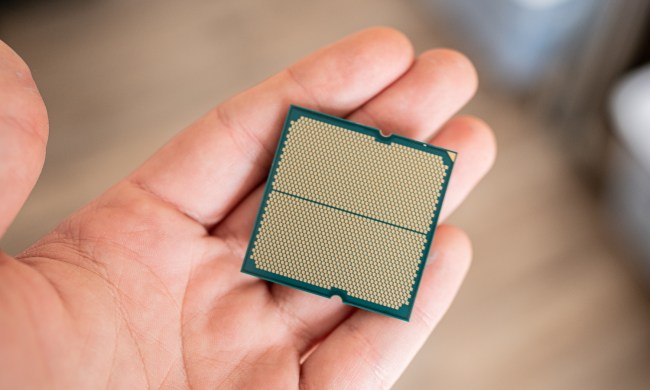The calls for a class-action lawsuit in response to Intel’s instability issues with 13th-gen and 14th-gen CPUs are turning into action. The law firm of Abington Cole + Ellery has launched an investigation into a potential class-action lawsuit against Intel, and it has a form on its website for users to submit details if they believe they’re an affected party.
The law firm hasn’t provided any details on what the class action might entail, but the form asks customers if they’ve purchased an affected processor or a PC containing one of the affected processors, as well as if they’ve experienced issues. About a day after posting, the form is currently sitting on top of the r/Intel subreddit, right above a megathread where Intel users can report if they’ve experienced any instability issues. A user claiming to be a class-action lawyer asked if Intel is honoring return requests, and most responses claim the company is.
Abington Cole and Ellery specializes in class action and intellectual property law, and the firm won a settlement against T-Mobile in 2021 related to a data breach. The law firm has launched dozens of investigations in the past, mostly related to data breaches.
As we learned when speaking to users impacted by the instability of Intel’s 13th-gen and 14th-gen CPUs, the problem is widespread. We’ve also heard sparse reports that Intel has denied return requests in some cases, which could play a critical role if this class-action lawsuit gets off the ground.
We’ve sent Intel a list of questions about its instability problem and have yet to receive answers to all of our concerns. The company has said it will fully support customers impacted by a manufacturing error in the exchange process, but it hasn’t committed to refunding users impacted by instability issues. It also has said it won’t recall the CPUs. In addition, Intel hasn’t commented on if it will honor returns on processors that are permanently damaged.
Although we don’t know exactly what’s going on with Intel’s CPUs, we have a lot of clues. Intel itself says that the problem could affect a wide range of CPUs. “Intel Core 13th and 14th Generation desktop processors with 65W or higher base power – including K/KF/KS and 65W non-K variants – could be affected by the elevated voltages issue. However, this does not mean the listed desktop processors are inevitably impacted by the issue,” Intel told Digital Trends.
Intel believes the source of the problem comes down to the microcode in the CPUs requesting too high of a voltage. The company says it will deliver a microcode update in mid-August. Although that could address some of the issues with Intel’s current batch of CPUs, the company describes the update as a “preventative measure” and hasn’t said if it will fix instability issues on CPUs that have already degraded.
It’s hard to know the scale of the issue, but Level1Techs estimates that the number of impacted chips could be as high as 50% of all 13th-gen and 14th-gen CPUs in circulation. Elevated operating voltages can cause a CPU to degrade rapidly. With millions of CPUs degrading at different rates, it’s hard to pin down exactly how widespread the issue is. If you have a 13th-gen or 14th-gen CPU, we recommend running through Robeytech’s benchmark process to see if your CPU crashes.
Although the situation with Intel’s CPUs is only heating up, it’s important to understand that this isn’t a lawsuit yet. This is an investigation into a potential class-action lawsuit. If it gets off the ground, we’ll keep you updated.





